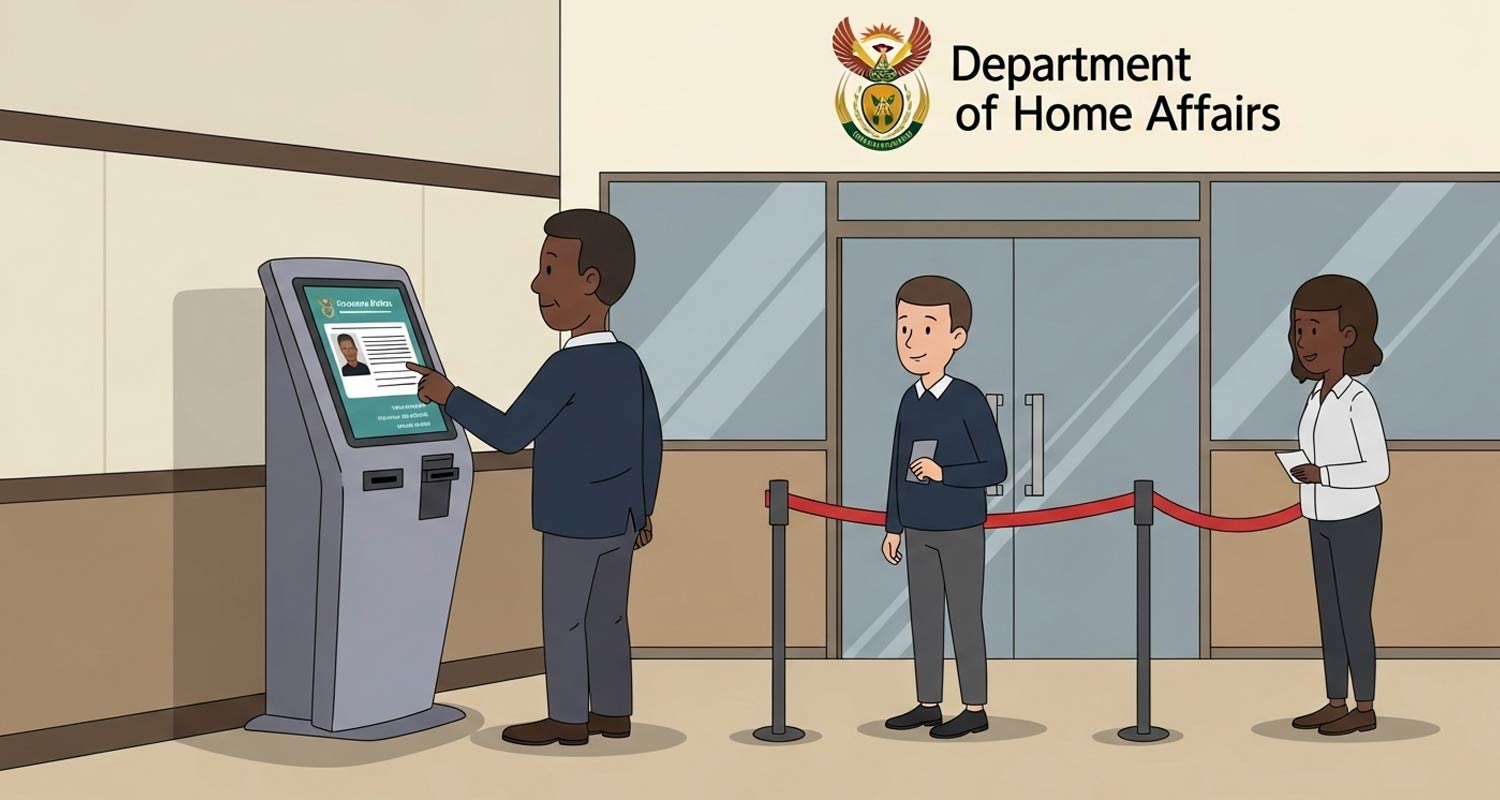The department of home affairs is going to roll out a suite of self-service kiosks as part of its plan to speed up service delivery and eliminate the notoriously long queues in its branches.
According to home affairs deputy minister Njabulo Nzuza, the department has already acquired 75 of these terminals, which will make some services – including the reprinting of birth, death and marriage certificates – accessible without the need to engage with any other touch points.
“We are on track with self-service kiosks as part of our digital transformation journey,” Nzuza told parliament in his budget vote speech late last week.
“The department has procured 75 of these virtual interactive self-service machines. The AI-powered kiosk will further expand our digital footprint and alleviate queues,” he said.
“It will provide an alternate digital self-service channel through which citizens can apply for and collect smart ID cards and passports. It will also provide citizens with reprints of birth, death and marriage certificates.”
Self-service kiosks are part of home affairs’ multi-channel service delivery strategy aimed at blending physical and digital access “to ensure citizen empowerment and inclusivity”. They have been used to great success in other sectors of the economy where queuing forms an integral part of how services are delivered to customers.
Perhaps the most visible instance of self-service kiosks in South Africa are those at restaurants operated by McDonald’s, KFC and others. Customers can place their orders and even make payment digitally at the terminals, with the option to pay cash at the manned counters also available.
Self-service
According to Jannie Hyman, senior manager for personalisation and issuance at Altron Fintech, self-service kiosks not only minimise queuing times, they also alleviate pressure on staff by decreasing the number of customers who need attending to.
“You reduce the amount of time people spend in your premises, especially when it comes to waiting. Self-service improves availability and makes the customer experience more unique, personalised and efficient,” Hyman said in an interview with TechCentral.
Read: Home affairs faces backlash over ID database fee surge
The banking industry has also taken to self-service terminals. Traditional banks are using them as a way of diverting traffic away from consultants and pushing their more digitally savvy clients towards the kiosks.
Neobanks like TymeBank have used self-service kiosks to make up for not having physical branches by distributing terminals at Pick n Pay, Boxer and TFG-branded stores across South Africa.
Customers can open accounts, apply for loans and even replace lost or stolen bank cards at a TymeBank kiosk.
 According to Hyman, self-service kiosks also allow organisations to cater to different clients in the way that customers prefer. Hyman said there is a generational split: older customers tend to prefer live interactions with people while younger generations feel more comfortable interacting through a digital interface.
According to Hyman, self-service kiosks also allow organisations to cater to different clients in the way that customers prefer. Hyman said there is a generational split: older customers tend to prefer live interactions with people while younger generations feel more comfortable interacting through a digital interface.
Home affairs will not be the first public entity to make use of self-service terminals. The Companies and Intellectual Property Commission has used the technology alongside an upgraded online portal to address a once-massive queueing problem at its branches.
Part of home affairs’ multi-channel strategy involves offering more of its services online, thereby eliminating the need for citizens to visit branches for the most basic processes. However, for online services to work securely, a national digital identity system is required.
According to Nzuza, home affairs’ digital identity agenda is well under way and the department has partnered with the South African Reserve Bank to implement the project.
“All human transactions are based on identity. To this end, we are working with the Reserve Bank to develop a robust digital identity system. This system will use facial recognition as the primary biometric modality thereby enhancing national security and reducing fraud risks,” said Nzuza. – © 2025 NewsCentral Media
Get breaking news from TechCentral on WhatsApp. Sign up here.



